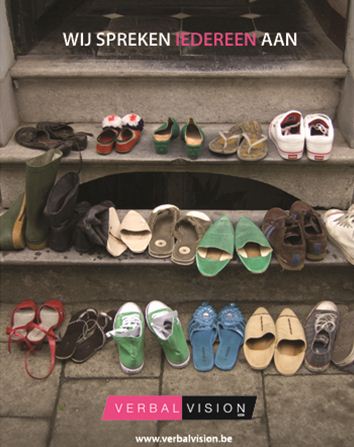Date: 17 – 18 October 2012
Place: Brussels
 EuroPCom, the third conference of the public communicators at all levels in the EU, brought together communication managers and senior experts of local, regional, national and European authorities.
EuroPCom, the third conference of the public communicators at all levels in the EU, brought together communication managers and senior experts of local, regional, national and European authorities.

Over 700 colleagues from all EU member states took part in this networking event. Amongst them was Media Diversity Institute representative. Lectures, debates and interactive workshops focussed on major communication challenges: restoring public confidence, communicating Europe, e-communication and social media as well as on dialogue with youth, senior citizens and ethnic groups.
EuroPCom 2012 was organised by the Committee of the Regions, in partnership with the European Parliament, the Council of the EU, the Cyprus EU Presidency and the European Commission.
This year’s theme was reconnecting citizens, young and elderly, and how to re-gain their trust in European projects. One of the tools is Eurobarometer, whose latest results, launched at the Conference, show the level of stress European citizens have in the prosperous future. ‘All starts with the understanding of public, and while young want to talk about the future, the old about the history, all we do is talking about the Euro’, said Stefano Rolando, a communication expert. Reaching citizens on regional and local level is another challenge, agreed the participants.
MDI Executive Director, Milica Pesic, moderated the panel ‘Communicating with ethnic groups’. “While migrant groups take a large share in many places all over Europe and specific segments of this population are often not taking part in the active dialogue with public authorities, because of their language, social situation, cultural differences etc, public communicators have an obligation to develop an inclusive communication approach, stimulating these ‘new’ citizens to engage”, says Pesic when opening the panel.
 The panellists talk about the need for a debate on the EU level on what kind of diversity management is needed and how to get the media to open debate on the models.
The panellists talk about the need for a debate on the EU level on what kind of diversity management is needed and how to get the media to open debate on the models.
If multiculturalism has ‘utterly failed’, what else we should come with to get the citizens, old or new connect with each other, asked the participants. In the times of crises, it could be pro-active CSOs who should help media being more inclusive – by offering them already made stories about different social and cultural groups.
The biggest challenge for journalists is how to be more inclusive, said Asma Ould Aissa of Verbal Vision, Belgium, while Deepak Naik, from United Religions Initiative (UK) insisted on a simple recipe for understanding of citizens. “What happens in my house it’s important, but if my neighbour is not happy, it will affect me at some point. Simple steps in building cultural bridges between communities, such as school exchanges, is a good start”, said Naik.
Closing the conference, Neelie Croes, EU Commissionaire in charge of Digital Agenda said “if we are not thinking out of the box, we will never solve the problem”. She invited all participants to come with some innovative communication ideas for the 2013 EuroPCom session.